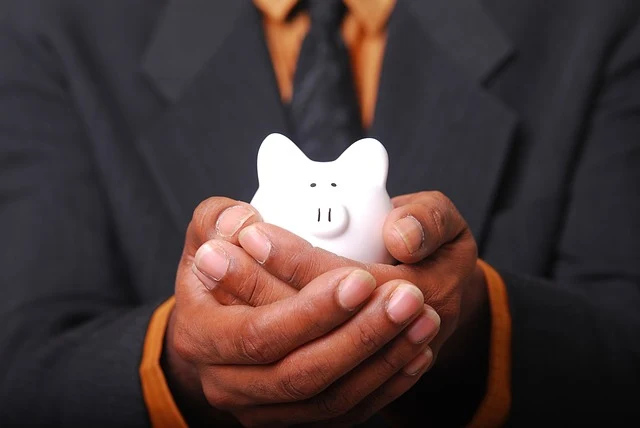In a world where consumerism often reigns supreme, the concept of frugal living offers a refreshing alternative a lifestyle centered around mindful spending, intentional consumption, and financial prudence. Embracing frugality doesn't mean sacrificing quality of life; rather, it's about maximizing value, minimizing waste, and prioritizing what truly matters. In this article, we'll explore a variety of practical frugal living ideas to help you stretch your dollars further, reduce financial stress, and achieve greater financial freedom.
 |
| Practical Frugal Living Ideas for Financial Freedom |
Embrace Minimalism: At the heart of frugal living lies the philosophy of minimalism-living with less to focus on what truly brings joy and fulfillment. Declutter your living space and pare down your possessions to essentials, letting go of items that no longer serve a purpose or bring value to your life. By simplifying your surroundings, you'll not only save money on unnecessary purchases but also experience a greater sense of clarity and freedom.
Cook at Home: Dining out can quickly eat away at your budget, while cooking at home offers both financial and health benefits. Embrace home cooking by planning meals, buying groceries in bulk, and preparing meals in advance. Get creative with affordable ingredients and explore budget-friendly recipes that make the most of seasonal produce and pantry staples. Not only will you save money, but you'll also enjoy healthier, more satisfying meals.
DIY Whenever Possible: Embrace the do-it-yourself (DIY) mindset to save money on everyday expenses and household projects. From home repairs and maintenance to crafting and gift-giving, there are countless opportunities to DIY and save. Learn basic repair skills, repurpose items you already own, and explore DIY alternatives to store-bought products. Whether it's sewing your clothes, brewing your coffee, or making your cleaning supplies, DIY can help you save money and tap into your creativity.
Practice Mindful Spending: Before making a purchase, ask yourself whether it aligns with your values and priorities. Practice mindful spending by considering the long-term impact of your purchases and distinguishing between wants and needs. Avoid impulse buys by implementing a waiting period before making non-essential purchases, giving yourself time to evaluate whether the purchase is truly necessary. By cultivating mindfulness in your spending habits, you'll make more intentional choices and save money in the process.
Shop Secondhand: One person's trash is another person's treasure, and shopping secondhand is a great way to score quality items at a fraction of the cost. Explore thrift stores, consignment shops, garage sales, and online marketplaces for gently used clothing, furniture, electronics, and more. Not only will you save money, but you'll also reduce waste and contribute to a more sustainable, circular economy.
Reduce, Reuse, Recycle: Embrace the three R's—reduce, reuse, and recycle—as guiding principles of frugal living. Cut down on waste by opting for reusable alternatives to single-use items, such as water bottles, shopping bags, and food containers. Mend or repurpose clothing and household items instead of discarding them, extending their lifespan and minimizing the need for new purchases. Recycle whenever possible to divert waste from landfills and conserve valuable resources.
Slash Subscriptions and Memberships: Take a critical look at your recurring expenses, such as subscription services, memberships, and monthly subscriptions. Cancel or downgrade services you don't use frequently or can live without, freeing up valuable funds for savings or debt repayment. Consider sharing subscriptions with family or friends to split the cost, or explore free or lower-cost alternatives to paid services.
Reduce Transportation Costs: Transportation expenses can eat up a significant portion of your budget, but there are ways to cut costs and live more frugally. Opt for alternative modes of transportation, such as walking, biking, or using public transit, whenever feasible. Carpool with coworkers or friends to share gas and parking expenses, or consider downsizing to a more fuel-efficient vehicle to save on fuel and maintenance costs. By reducing your reliance on cars and embracing alternative transportation options, you'll save money while reducing your carbon footprint.
Negotiate and Bargain: Don't be afraid to negotiate for better deals or ask for discounts when making purchases. Whether you're negotiating the price of a car, haggling at a flea market, or bargaining with service providers, it pays to be assertive and advocate for yourself. Look for opportunities to bundle services or negotiate lower rates on recurring expenses, such as insurance premiums or cable bills. With a bit of confidence and persistence, you can often secure better deals and save money in the process.
Focus on Free and Low-Cost Activities: Who says you need to spend a lot of money to have fun? Look for free or low-cost activities and entertainment options that allow you to enjoy life without breaking the bank. Explore local parks, hiking trails, and community events for outdoor recreation and cultural experiences. Take advantage of free resources such as libraries, museums, and community centers for entertainment, education, and enrichment. Get creative with DIY hobbies and activities that cost little to nothing, such as gardening, crafting, or cooking. By embracing frugal living and prioritizing experiences over possessions, you'll discover that happiness doesn't have to come with a hefty price tag.
Incorporating these frugal living ideas into your lifestyle can help you save money, reduce financial stress, and achieve greater financial freedom. Whether you're striving to build an emergency fund, pay off debt, or achieve long-term financial goals, embracing a frugal mindset can empower you to live more intentionally, sustainably, and happily with less. Start small, stay consistent, and watch as your savings grow, paving the way for a brighter, more secure financial future.




0 Comments
Please do not enter any spam links in the comment box.